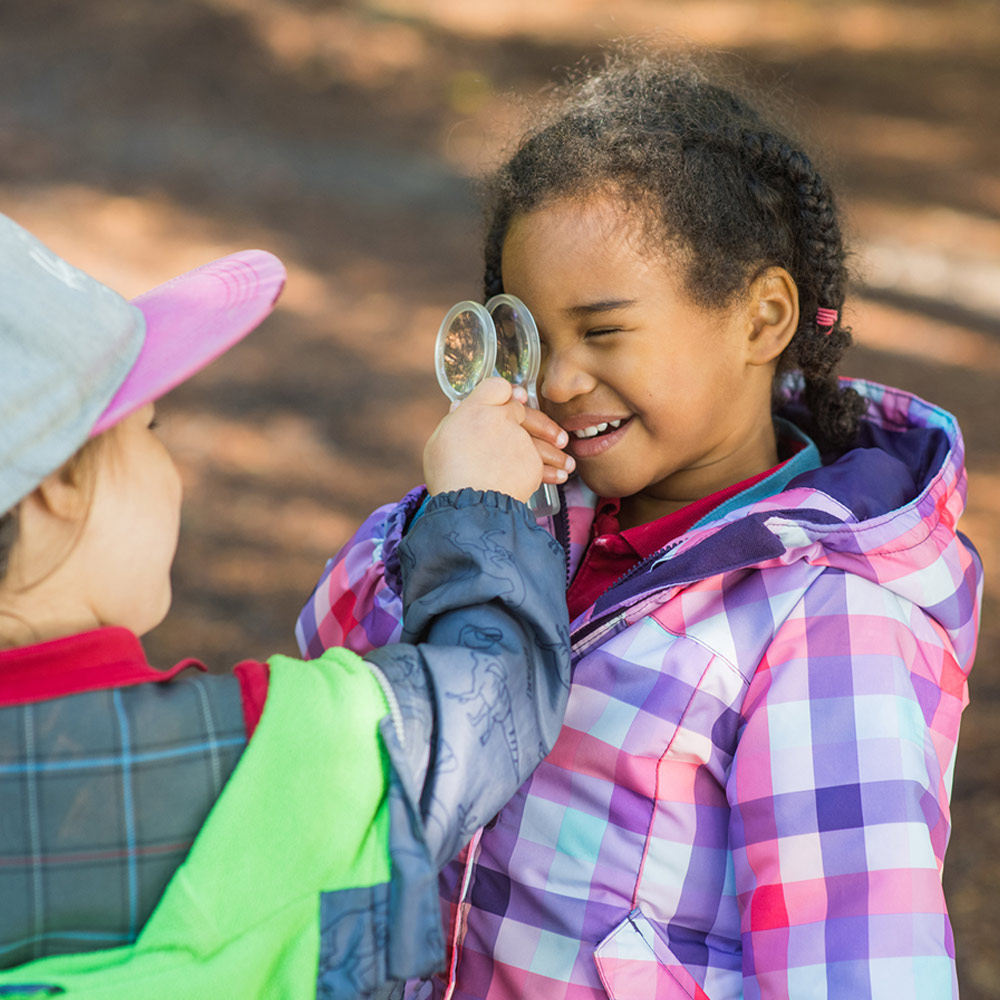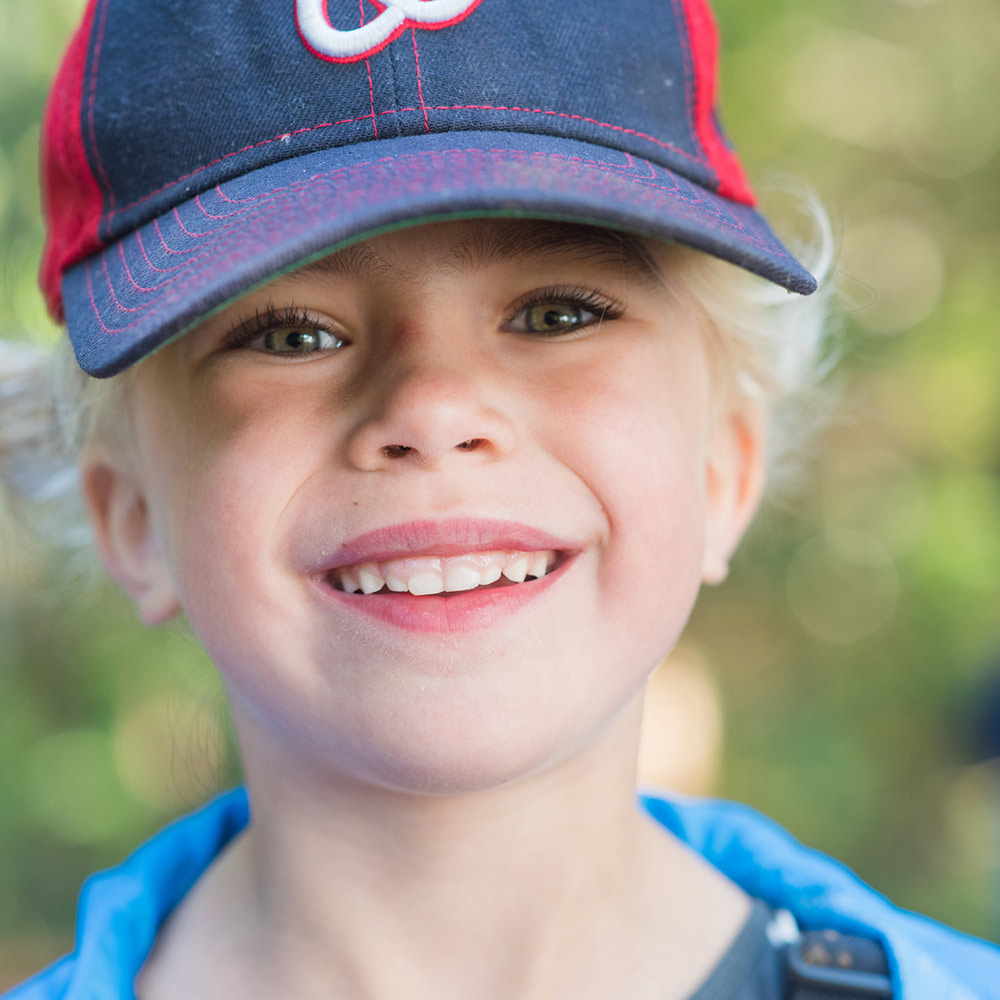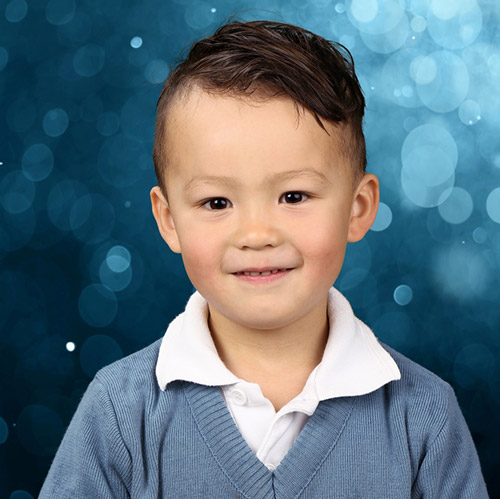Recognizing, and respecting the importance of, the small child's contribution to the world

Welcome
Did you know that 80% of your child’s mental development takes place before they’re eight years old? The education model you choose for them during this time really makes a difference.
Westmont’s Early Years program includes Pre-School and Kindergarten and quite simply, it’s remarkable.
You’ll see calm, hard-working, responsible, respectful small people absorbed in their work because they choose what to do, within boundaries.
Can a Kindergarten child lead? They do every day at Wesmont. Multi-age mentorship is profoundly positive for the new 3 or 4 year old as well as the 5 year old who’s learning how to lead.
With a teacher for every 8 students, your child’s nature and classroom Early Years experience will help them build the most solid foundation.
Stories from Early Years
A Classroom of Calm, Busy, Self Directed Energy

Nicky MacDonald
Westmont Montessori Teacher Trainer
The first time I spent a morning in a Montessori classroom, I was struck by the sense of peace and calm that I experienced and by how independent the young children seemed. They moved around the room in control of their actions, choosing their own work, tidying up, offering help to their friends, preparing their own snack, changing their own clothes and carrying out all of this without the apparent direction of their teacher. For large parts of the morning, I was hardly aware of the teacher being in the room as she worked intently with one child or another, while all around her was a busy hum of activity as the other children moved from one independently chosen task to another.
I have found this feeling of calm, busy energy in each of the Montessori classes that I have worked in, and I have come to realize that it is the freedom that the child experiences that makes it this way: freedom of movement, to choose their own activities, and to engage in these activities for as long as they want, within the order of a well prepared and interesting environment. These conditions allow the child, no matter what their particular personality, challenges, or background, to find peace and happiness. It is from this place of well-being and contentment that their desire to learn develops naturally and spontaneously.
Take a virtual tour of
Westmont’s Forest-Meets-Ocean Campus
Key Elements of an Early Years Experience
The "Children's House"
Montessori schools are often called the “Children’s House” because everything in them is designed to allow the child to become physically independent. The materials are child sized and the equipment is laid out in an orderly fashion on low shelves that are easily accessible for the children. The equipment is beautiful and well cared for, which encourages the children to take care of it too. Children between the ages of approximately two-and-a-half and six years are grouped together in their own mini society. The youngest learn from watching the older children, and the older ones benefit by helping those younger than they. The mixed age group allows the children to naturally develop socially, intellectually and emotionally.
Caring Community
We treasure this. And it’s real. Students are generally very respectful of one another. Parents know dozens of students and recognize them daily. Teachers are caring, loving, and passionate. Likely this remarkable culture was borne in a fundamental Montessori principle of “honour the child as they are, not as we wish them to be.” When a young person feels safe, supported, and honoured for who they are, their development flourishes.
Independence
In a Montessori school, children choose their activities independently and move freely from one activity to the next – always returning things to the shelf after they have used them. In an atmosphere of calm, young children concentrate for surprisingly long periods of time, working individually, in a group or with a friend. Ideally the morning or afternoon session lasts for a minimum of three hours; three hours in which there is no particular timetable, where the children are not only free to choose the activities they wish to work with, but are also free to work with them for as long as they wish. Groups can then arise spontaneously according to the interests of the children. Maria Montessori observed that this extended period of time was essential for the children to develop their ability to concentrate.
Stunning Nature
Maria Montessori said, “When children come into contact with nature, they reveal their strength.” We see it every day and are profoundly grateful for the 160+ acres of forest-meets-ocean splendour that Westmont students have to explore, connect and learn.
Check out our Stunning Nature page here for a campus and drone tour!
Prepared Environment
Maria Montessori based her system of education upon her careful observations of children. She saw that children “built themselves” based upon their interactions with what they found in their environment, and that it was by being able to work with real objects that they had freely chosen, and by being respected as individuals, that they could teach and develop themselves. Freedom within a structured environment enables a child to work at creating the person he/she will become. A Montessori classroom provides freedom whilst maintaining an environment that encourages a sense of order and self-discipline.
Multi-Age Mentorship
Can a Kindergarten child lead? They do every day at Wesmont. Multi-age mentorship is profoundly positive for the new 3 or 4 year old as well as the 5 year old who’s learning how to lead. Both learn humility, responsibility, respect, communication and conflict resolution skills. Supported with ‘Grace and Courtesy’ guidance from the beginning, this the start of a child’s journey towards becoming a very capable human being.
When is a child ready for the Montessori classroom?
The Early Primary Montessori classroom is designed for children between the ages of 2.5 and 6 years. All children are different, and some are developmentally ready before others. The following are a few examples of behaviours a child must display to be developmentally ready to begin preschool:
Able to communicate needs to the teacher and other children appropriately. Children who are too young will just cry when they need something, and will be very frustrated in an environment that is not meeting their needs.
Able to be independent in the bathroom. See toileting policy.
Able to sit quietly and complete an activity. Children who are too young for this type of classroom will take many activities out, work on them for only a short amount of time without completing anything, and then move on to something else without putting the previous activities away.
Will take suggestions from a teacher of work they are ready for. A child who is not ready will pull away from the teacher, or will display unwillingness to go with the teacher by lying on the floor, running away, etc.
Will allow teachers to show them how to use the activities on the shelf. A child who is developmentally too young will not be able to wait, watch or take in the process for doing the work.
Is happy to sit at circle time and listen to stories and engage in activities. A child who is too young will not be able to attend to group situations, sit for stories, participate in games, etc.
Able to follow simple directions for procedures like lining up, washing hands, putting on coat to go outside. The child does not have to be able to do these things perfectly, but has to be willing to listen to and follow instructions.
Able to stay with group and participate to the best of their ability, following the teachers’ instructions, when on hikes, beach days and during morning outdoor exercise. This is to ensure their safety as well as the others in the class.
When considering accepting a child, we have not only to consider the readiness of the individual child but also the needs of the whole classroom. Children who are too young take an extraordinary amount of a teacher’s time to the detriment of the classroom as a whole. We want every child to be happy in the classroom which means that they need to be developmentally ready for the experience.


